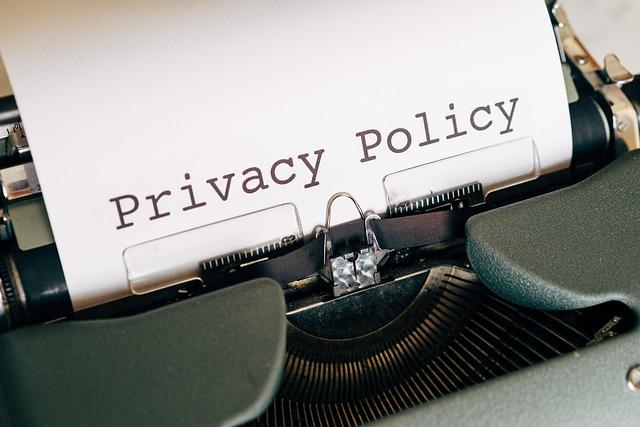In the digital age, where love often blooms from the glow of a smartphone screen, dating platforms have become the modern-day matchmakers. However, amid the swipes and messages, a less romantic reality lurks—privacy violations. As users entrust these platforms with personal details in the quest for connection, understanding how to recognize and protect against privacy breaches becomes crucial. This article delves into the nuances of digital dating, offering insights to help you safeguard your personal information while navigating the virtual world of romance.
Spotting Red Flags: Identifying Suspicious Activity
When navigating dating platforms, it’s crucial to be vigilant about signs that could indicate privacy violations. Unusual requests for personal information, such as your home address or financial details, should raise immediate concern. Repeated attempts to access private photos or contact lists are also significant red flags.
- Unverified Profiles: Be wary of profiles lacking basic information or those with inconsistencies.
- Pressure Tactics: Watch for users who push for rapid progression in the relationship or insist on moving conversations off-platform.
- Frequent Account Changes: Users who frequently change their profile name or picture could be trying to evade detection.
- Suspicious Links: Avoid clicking on unfamiliar links that could lead to phishing sites or malware.
Stay alert and prioritize your safety by recognizing these indicators, ensuring a secure and enjoyable online dating experience.
Guarding Your Data: Understanding Consent and Permissions
Navigating the world of online dating requires a keen understanding of how your data is handled. Consent and permissions are key elements in ensuring your privacy is respected. Before you swipe right, take a moment to delve into the app’s privacy settings. Look for clear explanations about what data is collected and how it’s used.
Here’s what to watch for:
- Default Settings: Often, apps have default settings that favor data sharing. Adjust these to limit data exposure.
- Data Sharing Policies: Scrutinize who your data is shared with. Ensure you have the option to opt-out.
- Third-Party Access: Be wary of permissions that allow third parties to access your information.
Recognizing these aspects can empower you to make informed choices, keeping your personal information secure while you search for connections.

Privacy Settings Unlocked: Maximizing Your Security Options
When diving into the world of online dating, it’s crucial to arm yourself with robust privacy settings. Here’s how you can ensure your personal information remains secure:
- Profile Visibility: Adjust who can view your profile. Opt for settings that limit visibility to only those you match with or communicate with directly.
- Location Sharing: Be wary of platforms that request precise location data. Always select options that obscure your exact whereabouts.
- Data Sharing: Review what personal data the platform can access and share. Disable permissions for unnecessary data collection.
Ensuring these settings are configured correctly not only protects your privacy but also enhances your overall security on the platform.

Reporting and Responding: Taking Action Against Violations
Recognizing privacy violations is just the beginning; taking decisive action is crucial to protect yourself and others. If you suspect a breach, start by documenting the incident. Keep screenshots and records of any suspicious activity or messages. This evidence can be vital when reporting the issue to the platform.
Most dating platforms have a dedicated section for reporting violations. Use these resources to alert the platform about the breach. Here are some steps you can take:
- Contact Support: Use the in-app support or help center to report the violation.
- Check Privacy Settings: Review and update your privacy settings to enhance security.
- Alert Authorities: If the violation is severe, consider contacting local authorities.
Taking these actions not only helps in addressing the current issue but also contributes to creating a safer environment for all users. Remember, your proactive steps can make a difference.



